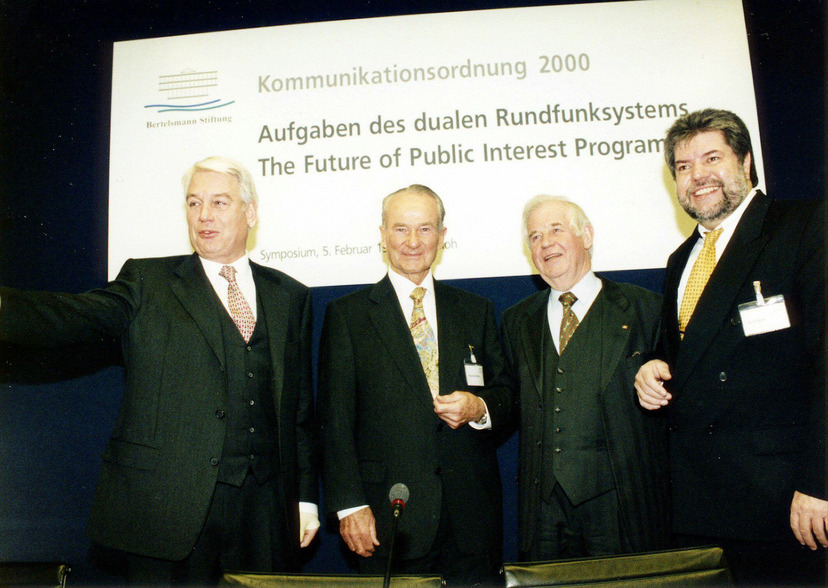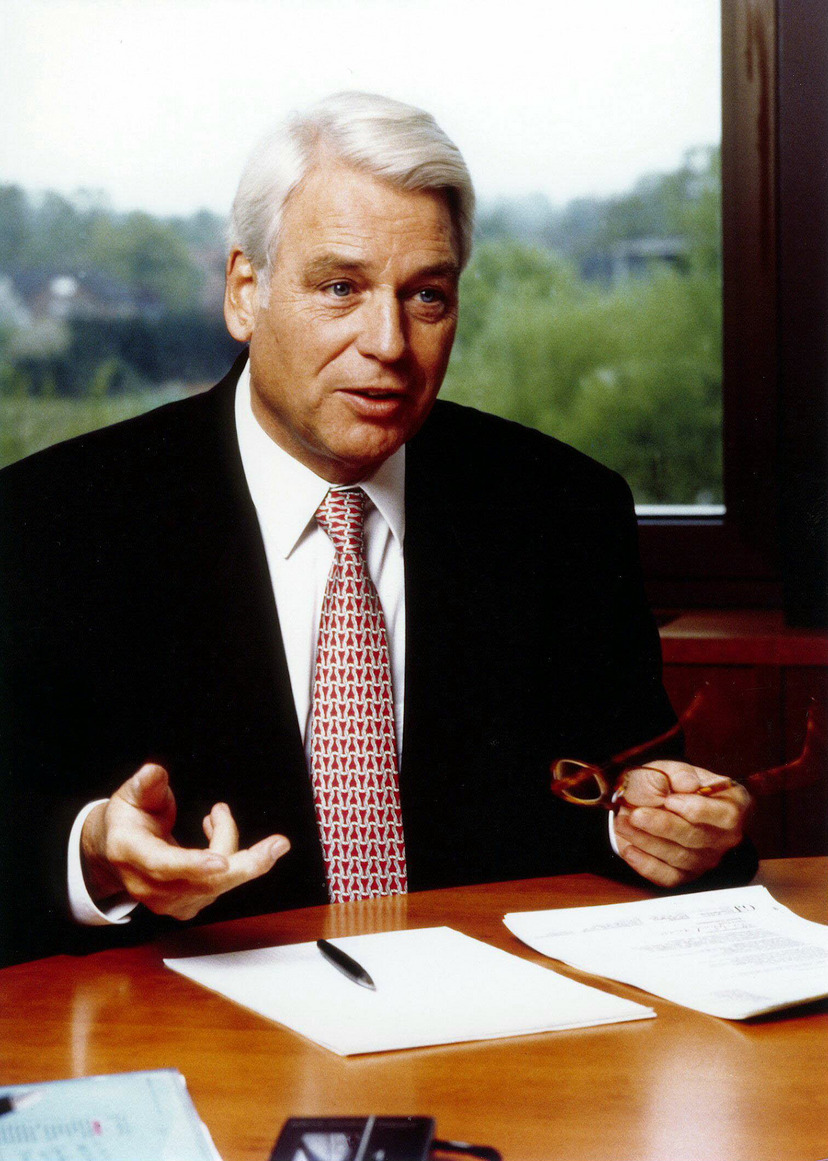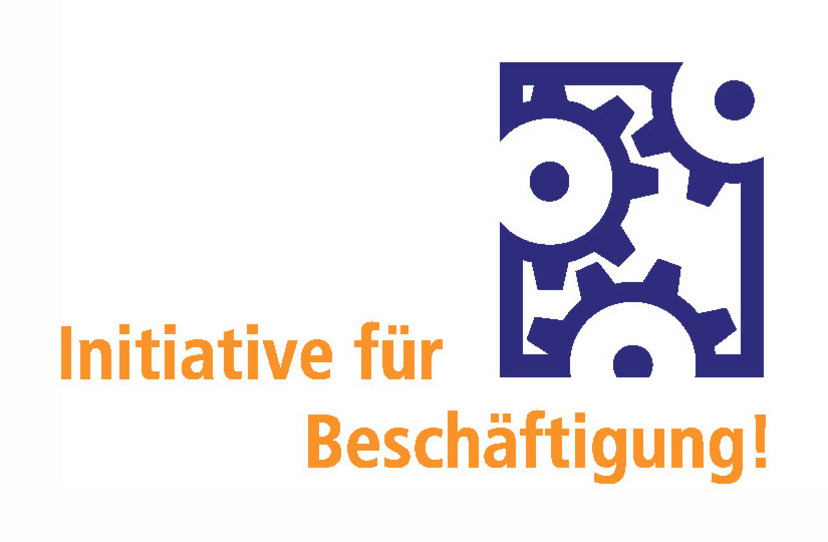Dr. Mark Wössner takes over as chair of the Bertelsmann Stiftung
Content
On November 1, 1998, Reinhard Mohn transfers the chairmanship of the Bertelsmann Stiftung Executive Board to Dr. Mark Wössner, who has been a member of the Bertelsmann AG Executive Board since 1976 and its chair from 1983 to 1998. Mohn remains a member of the foundation's Executive Board.
1998 Carl Bertelsmann Prize: "Communications 2000"
Industrialized nations are moving toward an information society. Digitization is the keyword for the social upheavals that many are comparing to those of industrialization. Content and information set new tasks for media policy: The state can no longer control the sheer amount of available media; the global interconnectedness of communication further calls into question the effectiveness of national regulation. This is where a deficit of responsibility arises. Content providers can compensate for this shortcoming in important ways by self-regulation. At the same time, it is important to improve users' media skills and their access to communication channels, so that citizens themselves can exercise greater responsibility. The state takes on a new role as the promoter of innovation and self-regulation. This development gives those overseeing the media market particular potential for opening the market and a special responsibility to ensure diversity and quality. Their power derives from a repertoire of government sanctions that clearly takes a back seat to self-regulatory mechanisms but nevertheless supports them and sets future media policy in the context of the common good.
The Canadian Radiotelevision and Telecommunications Commission (CRTC) and the Recreational Software Advisory Council (RSAC) share the 1998 Carl Bertelsmann Prize and the cash award of DM300,000. The CRTC is responsible for the radio, television and telecommunications market in Canada. Its activities include licensing, monitoring concentration and mergers, and monitoring content. It also issues, renews and amends broadcasting licenses. Internally, its radio, television and telecommunications departments work with a wide variety of cultures. The RSAC, headquartered in Washington DC, stands out among self-regulation initiatives with its model for protecting children and young people on the Internet. The RSAC, an independent nonprofit organization, developed a self-administered rating system for classifying content on the World Wide Web: Content providers independently label their web pages according to an established matrix of criteria. The web pages are classified and labeled in five stages with regard to content that might be of concern to parents. Internet users then decide for themselves what content should appear on their screens or their children's screens. Internet browsers, such as those from Netscape and Microsoft, read the label and then show or hide the Web pages depending on the user’s individual settings. While imposing only minimal interference with the free and democratic structure of the Internet, the filter provides effective protection for children and young people.
International Symposium on "Responsibilities of the dual broadcasting system"

Marc Darchinger
Conference on "Responsibilities of the Dual Broadcasting System" on February 5, 1998, in the Bertelsmann Stiftung conference space in Gütersloh. From left: Mark Wössner, Reinhard Mohn, Kurt Biedenkopf and Kurt Beck.
At a symposium held in February 1998, the Bertelsmann Stiftung presents the findings of its study "Fernsehen auf dem Prüfstand" ("Television under Scrutiny"), a comparison of systems in Australia, France, the UK, New Zealand, the USA and Germany, which includes a survey about programming, use and viewer ratings of Germany’s dual broadcasting system. The findings clearly show that systems with strong public and private providers offer programming of greater variety and higher quality than systems that rely primarily on private providers. However, they also clearly show that in a diverse market containing hundreds of programs, it is necessary to specify the role of public-service providers within the dual system. Therefore, the Bertelsmann Stiftung is developing a contract defining the functions of public-service broadcasting in Germany, somewhat modeled after the voluntary self-regulation of the BBC in Great Britain. Panelists include Kurt Beck, Professor Kurt Biedenkopf, Dr. Mark Wössner and Dr. Ingrid Hamm.
1998 International Bertelsmann Forum: "Europa vor der Vollendung" ("Incomplete Europe")
"Internal reforms are necessary if Europe is to act effectively in the future." This is the conclusion drawn by German President Roman Herzog at the two-day conference held at his official residence, Schloss Bellevue in Berlin. "Less responsibility for Brussels in areas better decided at other levels would actually constitute progress," he says. Jacques Santer, president of the EU Commission, also calls for far-reaching reform of the European Union. Both advocate expanding the principle of majority rule in the European Union. To a certain extent, the European Union must move away from the principle of unanimity, particularly in policy decisions regarding currency, the environment, foreign affairs and security. Some 50 high-ranking representatives from the political and economic spheres, academia and the media agree that the European Union must complete the necessary reforms before its upcoming inclusion of the nations in Central and Eastern Europe.
1998 International Foundation Symposium: The future of foundations in an open society
The increasing globalization of economic, political, and societal activities requires foundations to expand their thinking and their programs as well. This requires an international dialogue and cooperation across borders. Rising to the challenge, in May 1998 the Bertelsmann Stiftung hosts an international symposium of foundations to discuss "The future of foundations in an open society." Some 70 foundation representatives and experts from around the world, as well as entrepreneurs and representatives of international organizations, spent two days in Gütersloh discussing the role of foundations in a modern pluralistic society. The main focus was on the role of foundations in an open society as well as issues regarding the legitimacy and public acceptance of their activities.
Launch of nationwide Initiative for Employment!
The situation in the German labor market demands top-down consensus. Political ideologies and organizational affiliations must be transcended in order to increase jobs and reduce unemployment. It was this belief that inspired Prof. Jürgen Strube (BASF), Hubertus Schmoldt (IG BCE), and Reinhard Mohn to found the Initiative for Employment! in 1998. Thus far 19 regional networks have sprung up throughout Germany to develop and implement programs and projects to prepare, create, and secure jobs. About 2,000 people have participated in the networks since the initiative began, launching some 200 job-creating projects.




